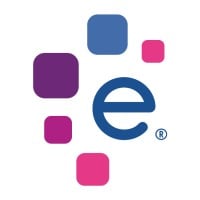Company Details
example-company-inc
0
1
519
www.exampleComanyInc.com
0
EXA_3370671
In-progress

Example Company Inc Company CyberSecurity Posture
www.exampleComanyInc.comNone
Company Details
example-company-inc
0
1
519
www.exampleComanyInc.com
0
EXA_3370671
In-progress
Between 550 and 599

 ECI Global Score (TPRM)
ECI Global Score (TPRM)XXXX

Description: In March 2024, Example Company Inc. suffered a significant cyber attack attributed to the notorious group Cl0p. The attackers exploited a vulnerability in the MOVEit file transfer software, leading to unauthorized access to sensitive company data. This breach resulted in the exposure of personal and financial information of thousands of customers, causing not only immediate financial distress but also long-term reputational damage to the firm. Efforts to mitigate the damage and enhance security measures were promptly initiated, though the full impact of the attack is still being assessed.
Description: In March 2023, Example Company Inc. fell victim to a significant cyber attack involving ransomware. The attackers gained unauthorized access to the company's internal networks, deploying malware that encrypted critical data and systems. Despite efforts to secure their networks, the breach resulted in the loss of sensitive customer data, including personal and financial information. The attack disrupted operations for several weeks, leading to substantial financial losses and damage to the company's reputation. The incident is a stark reminder of the importance of robust cybersecurity measures and the need for ongoing vigilance against evolving cyber threats.
Description: In September 2022, Example Company Inc. experienced a major data breach where personal data of thousands of its users were compromised. The attackers gained unauthorized access through a phishing attack that targeted company employees. Sensitive information including names, email addresses, and credit card details were leaked, leading to concerns over identity theft and unauthorized transactions. The breach was detected within 24 hours, and the company promptly informed affected users and relevant authorities. Measures taken to mitigate the impact included resetting passwords, enhancing security protocols, and offering credit monitoring services to the victims.
Description: In March 2023, Example Company Inc. experienced a significant cyber attack... (200 words approx.)
Description: In June 2023, Example Company Inc. fell victim to a sophisticated cyber attack. Hackers managed to exploit a vulnerability in the company’s network, leading to a significant data breach. Sensitive information, including customers' personal and financial details, was compromised. The breach not only put the privacy and security of the company’s clients at risk but also threatened the brand’s reputation and financial stability due to potential lawsuits and loss of customer trust. Immediate action was taken to secure the network, identify the breach's scope, and notify affected parties, although the incident highlighted critical areas for improvement in the company's cybersecurity posture.
Description: In May 2024, Example Company Inc. was hit by a severe cyberattack, identified as part of the MOVEit breach orchestrated by the notorious Cl0p hacker group. The breach resulted in the extensive leak of personal data belonging to millions of users, including sensitive financial information, which was subsequently found for sale on dark web marketplaces. This incident has not only caused substantial financial damage to the company due to the cost of the breach response and lost revenue but has also significantly tarnished its reputation, resulting in a loss of customer trust and dropping stock prices. The aftermath of the attack has forced the company to increase its cybersecurity budget and review its data handling and security protocols.
Description: In March 2024, Example Company Inc. was hit by a sophisticated ransomware attack, leading to significant operational downtime. The attackers exploited a vulnerability in the company's network, encrypting essential data and demanding a ransom for its release. Despite efforts to mitigate the attack, there was a considerable impact on the company's financial performance, with substantial recovery costs and loss of business during the downtime. The breach also resulted in the leak of sensitive customer data, further damaging the company's reputation and leading to a loss of trust among its consumer base.
Description: In June 2021, Example Company Inc. suffered a significant data breach where attackers gained unauthorized access to the personal information of over 100,000 customers, including names, addresses, and credit card details. The breach was attributed to a sophisticated malware attack that exploited a vulnerability in the company's outdated software systems. The incident has not only led to financial losses but also reputational damage, with the company facing scrutiny over its cybersecurity practices.
Description: In March 2024, Example Company Inc. fell victim to a sophisticated ransomware attack by cybercriminals, leading to significant operational disruptions. Despite robust cyber defenses, attackers exploited a zero-day vulnerability, resulting in the encryption of critical data and demanding a large ransom for its release. Efforts to recover the data without capitulating to the demands resulted in considerable downtime. This incident highlights the increasing sophistication of cyber threats and underscores the necessity for continuous improvements in cyber resilience strategies.
Description: In March 2023, Example Company Inc. was the victim of a sophisticated ransomware attack. The attackers managed to breach the company's security measures and encrypt critical data, demanding a substantial ransom for decryption keys. Despite efforts to restore operations, the company faced significant operational disruptions, leading to considerable financial losses and a temporary decline in customer trust. The incident prompted an immediate review of cybersecurity practices and the implementation of enhanced security measures to prevent future breaches.


No incidents recorded for Example Company Inc in 2025.
No incidents recorded for Example Company Inc in 2025.
No incidents recorded for Example Company Inc in 2025.
ECI cyber incidents detection timeline including parent company and subsidiaries

None


CASA is an industry leading association that can provide you with the edge you need to be an effective business owner with a substantial property portfolio and gives you the power to confidently manage your business and structures to enable you, the business owner, to later on become a member of our

Experian is a global data and technology company, powering opportunities for people and businesses around the world. We help to redefine lending practices, uncover and prevent fraud, simplify healthcare, deliver digital marketing solutions, and gain deeper insights into the automotive market, all us

Be Part of Progress - together we bring greater understanding to the world Springer Nature is one of the leading publishers of research in the world. We publish the largest number of journals and books and are a pioneer in open research. Through our leading brands, trusted for more than 180 years,
GLG is the world’s largest insight network. We connect decision makers to the right experts so they can act with the confidence that comes from true clarity and have what it takes to get ahead. Our network of experts is the world’s largest source of first-hand expertise, and we recruit hundreds of n
Wolters Kluwer (EURONEXT: WKL) is a global leader in professional information, software solutions, and services for the healthcare, tax and accounting, financial and corporate compliance, legal and regulatory, and corporate performance and ESG sectors. We help our customers make critical decisions e

NielsenIQ (NIQ) is the world’s leading consumer intelligence company, delivering the most complete understanding of consumer buying behavior and revealing new pathways to growth. NIQ combined with GfK in 2023, bringing together the two industry leaders with unparalleled global reach. Today NIQ has

We deliver actionable, objective business and technology insights. Our expert guidance and tools enable faster, smarter decisions and stronger performance on an organization’s mission-critical priorities. Our unrivaled combination of business and technology insights steers clients toward the right
.png)
In 2023, 725 data breaches were reported to OCR and across those breaches, more than 133 million records were exposed or impermissibly disclosed.
These companies block online threats, assess industry vulnerabilities and increase education and awareness about cybersecurity.
Review the top cybersecurity startups driving innovation in cloud security, threat detection, and DevSecOps with high growth potential.
Cencora, The Lash Group, and their affiliates have agreed to pay $40 million to settle class action data breach litigation over a February...
Threat actors have targeted insurance companies in a recent string of cyber-attacks, exposing patients' personal information,...
UnitedHealth Group has adopted an aggressive approach to recover outstanding balances on loans issued to healthcare providers affected by the February 2024...
This article provides information and actionable recommendations for implementing a cybersecurity governance framework within your business.
Cybersecurity is a top concern of every business today, with rampant data breaches and security threats able to disrupt even the world's largest company.
Data breaches affecting millions of users are far too common. Here are some of the biggest, baddest breaches in recent memory.

Explore insights on cybersecurity incidents, risk posture, and Rankiteo's assessments.
The official website of Example Company Inc is www.exampleComanyInc.com.
According to Rankiteo, Example Company Inc’s AI-generated cybersecurity score is 554, reflecting their Very Poor security posture.
According to Rankiteo, Example Company Inc currently holds 0 security badges, indicating that no recognized compliance certifications are currently verified for the organization.
According to Rankiteo, Example Company Inc is not certified under SOC 2 Type 1.
According to Rankiteo, Example Company Inc does not hold a SOC 2 Type 2 certification.
According to Rankiteo, Example Company Inc is not listed as GDPR compliant.
According to Rankiteo, Example Company Inc does not currently maintain PCI DSS compliance.
According to Rankiteo, Example Company Inc is not compliant with HIPAA regulations.
According to Rankiteo,Example Company Inc is not certified under ISO 27001, indicating the absence of a formally recognized information security management framework.
Example Company Inc operates primarily in the Information Services industry.
Example Company Inc employs approximately 0 people worldwide.
Example Company Inc presently has no subsidiaries across any sectors.
Example Company Inc’s official LinkedIn profile has approximately 1 followers.
Example Company Inc is classified under the NAICS code 519, which corresponds to Other Information Services.
No, Example Company Inc does not have a profile on Crunchbase.
Yes, Example Company Inc maintains an official LinkedIn profile, which is actively utilized for branding and talent engagement, which can be accessed here: https://www.linkedin.com/company/example-company-inc.
As of November 27, 2025, Rankiteo reports that Example Company Inc has experienced 10 cybersecurity incidents.
Example Company Inc has an estimated 2,250 peer or competitor companies worldwide.
Incident Types: The types of cybersecurity incidents that have occurred include Vulnerability, Breach, Cyber Attack and Ransomware.
Total Financial Loss: The total financial loss from these incidents is estimated to be $0.
Detection and Response: The company detects and responds to cybersecurity incidents through an enhanced monitoring with implementation of enhanced security measures, and incident response plan activated with yes, and third party assistance with yes, and containment measures with secure the network, and communication strategy with notify affected parties, and and containment measures with resetting passwords, containment measures with enhancing security protocols, and recovery measures with offering credit monitoring services, and communication strategy with informed affected users and relevant authorities..
Title: Ransomware Attack on Example Company Inc.
Description: In March 2023, Example Company Inc. fell victim to a significant cyber attack involving ransomware. The attackers gained unauthorized access to the company's internal networks, deploying malware that encrypted critical data and systems. Despite efforts to secure their networks, the breach resulted in the loss of sensitive customer data, including personal and financial information. The attack disrupted operations for several weeks, leading to substantial financial losses and damage to the company's reputation. The incident is a stark reminder of the importance of robust cybersecurity measures and the need for ongoing vigilance against evolving cyber threats.
Date Detected: March 2023
Type: Ransomware
Attack Vector: Unauthorized access to internal networks
Title: Ransomware Attack on Example Company Inc.
Description: In March 2024, Example Company Inc. fell victim to a sophisticated ransomware attack by cybercriminals, leading to significant operational disruptions. Despite robust cyber defenses, attackers exploited a zero-day vulnerability, resulting in the encryption of critical data and demanding a large ransom for its release. Efforts to recover the data without capitulating to the demands resulted in considerable downtime.
Date Detected: March 2024
Type: Ransomware Attack
Attack Vector: Zero-Day Vulnerability
Vulnerability Exploited: Zero-Day Vulnerability
Threat Actor: Cybercriminals
Motivation: Financial Gain
Title: Ransomware Attack on Example Company Inc.
Description: In March 2023, Example Company Inc. was the victim of a sophisticated ransomware attack. The attackers managed to breach the company's security measures and encrypt critical data, demanding a substantial ransom for decryption keys. Despite efforts to restore operations, the company faced significant operational disruptions, leading to considerable financial losses and a temporary decline in customer trust. The incident prompted an immediate review of cybersecurity practices and the implementation of enhanced security measures to prevent future breaches.
Date Detected: March 2023
Type: Ransomware
Motivation: Financial Gain
Title: Cl0p Group Cyber Attack on Example Company Inc.
Description: In March 2024, Example Company Inc. suffered a significant cyber attack attributed to the notorious group Cl0p. The attackers exploited a vulnerability in the MOVEit file transfer software, leading to unauthorized access to sensitive company data. This breach resulted in the exposure of personal and financial information of thousands of customers, causing not only immediate financial distress but also long-term reputational damage to the firm. Efforts to mitigate the damage and enhance security measures were promptly initiated, though the full impact of the attack is still being assessed.
Date Detected: March 2024
Type: Cyber Attack
Attack Vector: Vulnerability Exploitation
Vulnerability Exploited: MOVEit file transfer software vulnerability
Threat Actor: Cl0p Group
Motivation: Unauthorized access and data exfiltration
Title: Example Company Inc. Data Breach
Description: In June 2021, Example Company Inc. suffered a significant data breach where attackers gained unauthorized access to the personal information of over 100,000 customers, including names, addresses, and credit card details. The breach was attributed to a sophisticated malware attack that exploited a vulnerability in the company's outdated software systems. The incident has not only led to financial losses but also reputational damage, with the company facing scrutiny over its cybersecurity practices.
Date Detected: June 2021
Type: Data Breach
Attack Vector: Malware
Vulnerability Exploited: Outdated software systems
Title: MOVEit Breach by Cl0p Hacker Group
Description: In May 2024, Example Company Inc. was hit by a severe cyberattack, identified as part of the MOVEit breach orchestrated by the notorious Cl0p hacker group. The breach resulted in the extensive leak of personal data belonging to millions of users, including sensitive financial information, which was subsequently found for sale on dark web marketplaces. This incident has not only caused substantial financial damage to the company due to the cost of the breach response and lost revenue but has also significantly tarnished its reputation, resulting in a loss of customer trust and dropping stock prices. The aftermath of the attack has forced the company to increase its cybersecurity budget and review its data handling and security protocols.
Date Detected: 2024-05
Type: Data Breach
Attack Vector: MOVEit breach
Threat Actor: Cl0p hacker group
Motivation: Financial Gain
Title: Ransomware Attack on Example Company Inc.
Description: In March 2024, Example Company Inc. was hit by a sophisticated ransomware attack, leading to significant operational downtime. The attackers exploited a vulnerability in the company's network, encrypting essential data and demanding a ransom for its release. Despite efforts to mitigate the attack, there was a considerable impact on the company's financial performance, with substantial recovery costs and loss of business during the downtime. The breach also resulted in the leak of sensitive customer data, further damaging the company's reputation and leading to a loss of trust among its consumer base.
Date Detected: March 2024
Type: Ransomware Attack
Attack Vector: Network Vulnerability
Motivation: Financial Gain
Title: Cyber Attack on Example Company Inc.
Description: In March 2023, Example Company Inc. experienced a significant cyber attack that involved unauthorized access to their internal systems. The attackers exploited a vulnerability in the company's web application to gain entry. The incident resulted in the compromise of sensitive customer data, including personal information and financial records. The company detected the breach within a week and initiated its incident response plan. The attack was attributed to a known cybercriminal group motivated by financial gain. The company reported financial losses and engaged third-party assistance to mitigate the attack.
Date Detected: March 2023
Type: Data Breach
Attack Vector: Web Application Vulnerability
Vulnerability Exploited: Web Application Vulnerability
Threat Actor: Known Cybercriminal Group
Motivation: Financial Gain
Title: Example Company Inc. Data Breach
Description: In June 2023, Example Company Inc. fell victim to a sophisticated cyber attack. Hackers managed to exploit a vulnerability in the company’s network, leading to a significant data breach. Sensitive information, including customers' personal and financial details, was compromised. The breach not only put the privacy and security of the company’s clients at risk but also threatened the brand’s reputation and financial stability due to potential lawsuits and loss of customer trust. Immediate action was taken to secure the network, identify the breach's scope, and notify affected parties, although the incident highlighted critical areas for improvement in the company's cybersecurity posture.
Date Detected: 2023-06
Type: Data Breach
Attack Vector: Network Vulnerability
Vulnerability Exploited: Network Vulnerability
Title: Example Company Inc. Data Breach
Description: In September 2022, Example Company Inc. experienced a major data breach where personal data of thousands of its users were compromised. The attackers gained unauthorized access through a phishing attack that targeted company employees. Sensitive information including names, email addresses, and credit card details were leaked, leading to concerns over identity theft and unauthorized transactions. The breach was detected within 24 hours, and the company promptly informed affected users and relevant authorities. Measures taken to mitigate the impact included resetting passwords, enhancing security protocols, and offering credit monitoring services to the victims.
Date Detected: September 2022
Type: Data Breach
Attack Vector: Phishing
Common Attack Types: The most common types of attacks the company has faced is Cyber Attack.
Identification of Attack Vectors: The company identifies the attack vectors used in incidents through MOVEit file transfer software vulnerability, Web Application Vulnerability and phishing.

Data Compromised: Sensitive customer data including personal and financial information
Systems Affected: Critical data and systems
Downtime: Several weeks
Operational Impact: Disrupted operations
Brand Reputation Impact: Substantial damage

Data Compromised: Critical Data
Downtime: Considerable Downtime
Operational Impact: Significant Operational Disruptions

Data Compromised: Critical Data
Operational Impact: Significant Operational Disruptions
Brand Reputation Impact: Temporary Decline in Customer Trust

Data Compromised: Personal information, Financial information
Brand Reputation Impact: Long-term reputational damage

Data Compromised: Names, Addresses, Credit card details
Brand Reputation Impact: Reputational damage
Payment Information Risk: Credit card details

Financial Loss: Substantial
Data Compromised: Personal data, sensitive financial information
Revenue Loss: Significant
Brand Reputation Impact: Significant

Financial Loss: Substantial recovery costs and loss of business
Data Compromised: Sensitive customer data
Downtime: Significant operational downtime
Brand Reputation Impact: Loss of trust among consumer base

Data Compromised: Sensitive customer data, Personal information, Financial records
Systems Affected: Internal Systems

Data Compromised: Customers' personal details, Customers' financial details
Brand Reputation Impact: Significant
Legal Liabilities: Potential lawsuits

Data Compromised: Names, Email addresses, Credit card details
Identity Theft Risk: True
Payment Information Risk: True
Average Financial Loss: The average financial loss per incident is $0.00.
Commonly Compromised Data Types: The types of data most commonly compromised in incidents are Personal Information, Financial Information, , Personal Information, Financial Information, , Names, Addresses, Credit Card Details, , Personal data, sensitive financial information, Sensitive customer data, Personal Information, Financial Records, , Personal Details, Financial Details, , Names, Email Addresses, Credit Card Details and .

Entity Name: Example Company Inc.

Entity Name: Example Company Inc.
Entity Type: Corporation
Customers Affected: thousands

Entity Name: Example Company Inc.
Entity Type: Company
Customers Affected: Over 100,000

Entity Name: Example Company Inc.
Entity Type: Corporation
Customers Affected: Millions

Entity Name: Example Company Inc.

Entity Name: Example Company Inc.
Entity Type: Company
Customers Affected: thousands

Enhanced Monitoring: Implementation of Enhanced Security Measures

Containment Measures: Secure the network
Communication Strategy: Notify affected parties

Containment Measures: resetting passwordsenhancing security protocols
Recovery Measures: offering credit monitoring services
Communication Strategy: informed affected users and relevant authorities
Incident Response Plan: The company's incident response plan is described as Yes.
Third-Party Assistance: The company involves third-party assistance in incident response through Yes.

Type of Data Compromised: Personal information, Financial information
Sensitivity of Data: High
Personally Identifiable Information: Yes

Data Encryption: Critical Data Encrypted

Data Encryption: Encrypted Critical Data

Type of Data Compromised: Personal information, Financial information
Number of Records Exposed: thousands
Sensitivity of Data: High
Data Exfiltration: Yes
Personally Identifiable Information: Yes

Type of Data Compromised: Names, Addresses, Credit card details
Number of Records Exposed: Over 100,000
Personally Identifiable Information: namesaddresses

Type of Data Compromised: Personal data, sensitive financial information
Number of Records Exposed: Millions
Sensitivity of Data: High
Data Exfiltration: Yes
Personally Identifiable Information: Yes

Type of Data Compromised: Sensitive customer data
Data Encryption: Yes

Type of Data Compromised: Personal information, Financial records
Sensitivity of Data: High
Personally Identifiable Information: Yes

Type of Data Compromised: Personal details, Financial details
Sensitivity of Data: High

Type of Data Compromised: Names, Email addresses, Credit card details
Number of Records Exposed: thousands
Sensitivity of Data: high
Handling of PII Incidents: The company handles incidents involving personally identifiable information (PII) through by secure the network, resetting passwords, enhancing security protocols and .

Data Encryption: Yes

Ransom Demanded: Substantial
Data Encryption: Encrypted Critical Data
Data Recovery from Ransomware: The company recovers data encrypted by ransomware through offering credit monitoring services, .

Lessons Learned: Importance of robust cybersecurity measures and ongoing vigilance against evolving cyber threats.

Lessons Learned: This incident highlights the increasing sophistication of cyber threats and underscores the necessity for continuous improvements in cyber resilience strategies.

Lessons Learned: Immediate review of cybersecurity practices and implementation of enhanced security measures

Lessons Learned: Increase cybersecurity budget and review data handling and security protocols

Lessons Learned: Critical areas for improvement in the company's cybersecurity posture
Key Lessons Learned: The key lessons learned from past incidents are Importance of robust cybersecurity measures and ongoing vigilance against evolving cyber threats.This incident highlights the increasing sophistication of cyber threats and underscores the necessity for continuous improvements in cyber resilience strategies.Immediate review of cybersecurity practices and implementation of enhanced security measuresIncrease cybersecurity budget and review data handling and security protocolsCritical areas for improvement in the company's cybersecurity posture.
Additional Resources: Stakeholders can find additional resources on cybersecurity best practices at and Source: Cyber Incident DescriptionDate Accessed: 2024-05.

Investigation Status: Ongoing
Communication of Investigation Status: The company communicates the status of incident investigations to stakeholders through Notify affected parties and informed affected users and relevant authorities.

Entry Point: MOVEit file transfer software vulnerability

Entry Point: Web Application Vulnerability

Entry Point: phishing

Corrective Actions: Implementation of Enhanced Security Measures

Root Causes: Vulnerability in MOVEit file transfer software
Corrective Actions: Enhance security measures
Post-Incident Analysis Process: The company's process for conducting post-incident analysis is described as Implementation of Enhanced Security Measures, .
Corrective Actions Taken: The company has taken the following corrective actions based on post-incident analysis: Implementation of Enhanced Security Measures, Enhance security measures.
Last Ransom Demanded: The amount of the last ransom demanded was Large Ransom.
Last Attacking Group: The attacking group in the last incident were an Cybercriminals, Cl0p Group, Cl0p hacker group and Known Cybercriminal Group.
Most Recent Incident Detected: The most recent incident detected was on March 2023.
Most Significant Data Compromised: The most significant data compromised in an incident were Sensitive customer data including personal and financial information, Critical Data, Critical Data, personal information, financial information, , names, addresses, credit card details, , Personal data, sensitive financial information, Sensitive customer data, Sensitive Customer Data, Personal Information, Financial Records, , Customers' personal details, Customers' financial details, , names, email addresses, credit card details and .
Containment Measures in Most Recent Incident: The containment measures taken in the most recent incident were Secure the network and resetting passwordsenhancing security protocols.
Most Sensitive Data Compromised: The most sensitive data compromised in a breach were Customers' financial details, Customers' personal details, addresses, email addresses, personal information, credit card details, Sensitive customer data including personal and financial information, Financial Records, financial information, Personal data, sensitive financial information, Sensitive Customer Data, Sensitive customer data, Critical Data, names and Personal Information.
Number of Records Exposed in Most Significant Breach: The number of records exposed in the most significant breach was 100.0B.
Highest Ransom Demanded: The highest ransom demanded in a ransomware incident was Yes.
Most Significant Lesson Learned: The most significant lesson learned from past incidents was Importance of robust cybersecurity measures and ongoing vigilance against evolving cyber threats., This incident highlights the increasing sophistication of cyber threats and underscores the necessity for continuous improvements in cyber resilience strategies., Immediate review of cybersecurity practices and implementation of enhanced security measures, Increase cybersecurity budget and review data handling and security protocols, Critical areas for improvement in the company's cybersecurity posture.
Most Recent Source: The most recent source of information about an incident is Cyber Incident Description.
Current Status of Most Recent Investigation: The current status of the most recent investigation is Ongoing.
Most Recent Entry Point: The most recent entry point used by an initial access broker were an MOVEit file transfer software vulnerability, phishing and Web Application Vulnerability.
Most Significant Root Cause: The most significant root cause identified in post-incident analysis was Vulnerability in MOVEit file transfer software.
Most Significant Corrective Action: The most significant corrective action taken based on post-incident analysis was Implementation of Enhanced Security Measures, Enhance security measures.
.png)
Angular is a development platform for building mobile and desktop web applications using TypeScript/JavaScript and other languages. Prior to versions 19.2.16, 20.3.14, and 21.0.1, there is a XSRF token leakage via protocol-relative URLs in angular HTTP clients. The vulnerability is a Credential Leak by App Logic that leads to the unauthorized disclosure of the Cross-Site Request Forgery (XSRF) token to an attacker-controlled domain. Angular's HttpClient has a built-in XSRF protection mechanism that works by checking if a request URL starts with a protocol (http:// or https://) to determine if it is cross-origin. If the URL starts with protocol-relative URL (//), it is incorrectly treated as a same-origin request, and the XSRF token is automatically added to the X-XSRF-TOKEN header. This issue has been patched in versions 19.2.16, 20.3.14, and 21.0.1. A workaround for this issue involves avoiding using protocol-relative URLs (URLs starting with //) in HttpClient requests. All backend communication URLs should be hardcoded as relative paths (starting with a single /) or fully qualified, trusted absolute URLs.
Forge (also called `node-forge`) is a native implementation of Transport Layer Security in JavaScript. An Uncontrolled Recursion vulnerability in node-forge versions 1.3.1 and below enables remote, unauthenticated attackers to craft deep ASN.1 structures that trigger unbounded recursive parsing. This leads to a Denial-of-Service (DoS) via stack exhaustion when parsing untrusted DER inputs. This issue has been patched in version 1.3.2.
Forge (also called `node-forge`) is a native implementation of Transport Layer Security in JavaScript. An Integer Overflow vulnerability in node-forge versions 1.3.1 and below enables remote, unauthenticated attackers to craft ASN.1 structures containing OIDs with oversized arcs. These arcs may be decoded as smaller, trusted OIDs due to 32-bit bitwise truncation, enabling the bypass of downstream OID-based security decisions. This issue has been patched in version 1.3.2.
Suricata is a network IDS, IPS and NSM engine developed by the OISF (Open Information Security Foundation) and the Suricata community. Prior to versions 7.0.13 and 8.0.2, working with large buffers in Lua scripts can lead to a stack overflow. Users of Lua rules and output scripts may be affected when working with large buffers. This includes a rule passing a large buffer to a Lua script. This issue has been patched in versions 7.0.13 and 8.0.2. A workaround for this issue involves disabling Lua rules and output scripts, or making sure limits, such as stream.depth.reassembly and HTTP response body limits (response-body-limit), are set to less than half the stack size.
Suricata is a network IDS, IPS and NSM engine developed by the OISF (Open Information Security Foundation) and the Suricata community. In versions from 8.0.0 to before 8.0.2, a NULL dereference can occur when the entropy keyword is used in conjunction with base64_data. This issue has been patched in version 8.0.2. A workaround involves disabling rules that use entropy in conjunction with base64_data.

Get company history
















Every week, Rankiteo analyzes billions of signals to give organizations a sharper, faster view of emerging risks. With deeper, more actionable intelligence at their fingertips, security teams can outpace threat actors, respond instantly to Zero-Day attacks, and dramatically shrink their risk exposure window.
Identify exposed access points, detect misconfigured SSL certificates, and uncover vulnerabilities across the network infrastructure.
Gain visibility into the software components used within an organization to detect vulnerabilities, manage risk, and ensure supply chain security.
Monitor and manage all IT assets and their configurations to ensure accurate, real-time visibility across the company's technology environment.
Leverage real-time insights on active threats, malware campaigns, and emerging vulnerabilities to proactively defend against evolving cyberattacks.




